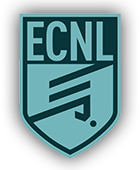The Art of Practicing to Become Exceptional
Over the past several years, much has been written about the specific type of practice that is required to develop a world-class performer. In this research, the term for the training habits of elite performers in any field (athletics, music, chess, and more) has been termed “deliberate practice.”
Over the past several years, much has been written about the specific type of practice that is required to develop a world-class performer. In this research, the term for the training habits of elite performers in any field (athletics, music, chess, and more) has been termed “deliberate practice.”
As reflected by this research, “deliberate practice” has several characteristics:
- It is “Stretching” and Specifically Designed - it focuses on targeted skills that are just beyond the performer’s current abilities in order to constantly push boundaries of performance. As stated by Daniel Coyle in The Talent Code: “struggling in certain targeted ways – operating at the edges of your ability, where you make mistakes – makes you smarter.”
- It includes High Repetition – there is no substitute for quantity of practice, especially when it is specifically targeted.
- It includes Immediate, High Quality Feedback –an expert teacher that can provide insight on the subtle details impacting performance is critical.
- It is Mentally Exhausting – it takes tremendous focus and concentration on details of performance; it is the polar opposite of mindless activity.
- It is Very Difficult – this logic is almost self-obvious: (i) repeated performance, (ii) of tasks beyond the performer’s current ability level, (iii) that are mentally taxing – is very difficult. As Michelangelo reportedly stated: “If people knew how hard I had to work to gain my mastery, it would not seem so wonderful at all.”
(For more details and discussion of these characteristics, see Geoff Colvin’s Talent is Overrated or Daniel Coyle’s The Talent Code.)
In summary, “deliberate practice” can almost be described as a never-ending search for improved performance. When looked at in this manner, more thoughts on what it truly takes to become a top soccer player (or any athlete) come out:
- Never train what is easy … if it is easy, it is comfortable – and therefore you are not learning or improving.
- Train to perform at a level higher than you are currently playing … identify what is “good enough” for your current level – and then substantially raise your expectations for your personal performance.
- Visualize perfection of the skill or performance, and never move your vision from this goal – this is your target and anchor. In other words, “start with the end in mind.”
Keep these thoughts in mind as you prepare yourself for team trainings – and as you set your expectations and mindset.
Keep these thoughts in mind as you design your individual training sessions.
For a great picture of what deliberate practice of very specific skating skills in ice hockey looks like, click here. You can see the very specific, targeted skills as well as the high amount repetition. It does not take much imagination to see how this type of training design is translated to developing great technique in soccer.
The closer you keep to these characteristics, the faster you will get better – and the better you will become.



